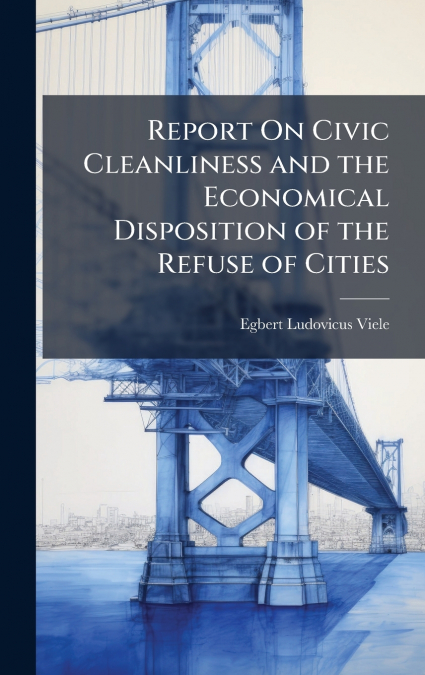
Egbert Ludovicus Viele
'Report On Civic Cleanliness and the Economical Disposition of the Refuse of Cities' by Egbert Ludovicus Viele offers a comprehensive overview of urban sanitation practices in the early 20th century. This meticulously detailed report examines the challenges of maintaining cleanliness in rapidly growing cities and proposes economical methods for managing waste. Viele’s work provides valuable insights into the historical context of urban planning and public health, addressing issues such as waste disposal, street cleaning, and the overall impact of sanitation on community well-being.This report is not only a historical document but also a relevant resource for contemporary discussions on sustainable urban development and environmental conservation. It serves as a reminder of the importance of effective waste management and its profound influence on the health and prosperity of urban populations. Scholars and practitioners alike will find this work an invaluable contribution to understanding the evolution of civic hygiene.This work has been selected by scholars as being culturally important, and is part of the knowledge base of civilization as we know it. This work was reproduced from the original artifact, and remains as true to the original work as possible. Therefore, you will see the original copyright references, library stamps (as most of these works have been housed in our most important libraries around the world), and other notations in the work.This work is in the public domain in the United States of America, and possibly other nations. Within the United States, you may freely copy and distribute this work, as no entity (individual or corporate) has a copyright on the body of the work.As a reproduction of a historical artifact, this work may contain missing or blurred pages, poor pictures, errant marks, etc. Scholars believe, and we concur, that this work is important enough to be preserved, reproduced, and made generally available to the public. We appreciate your support of the preservation process, and thank you for being an important part of keeping this knowledge alive and relevant.